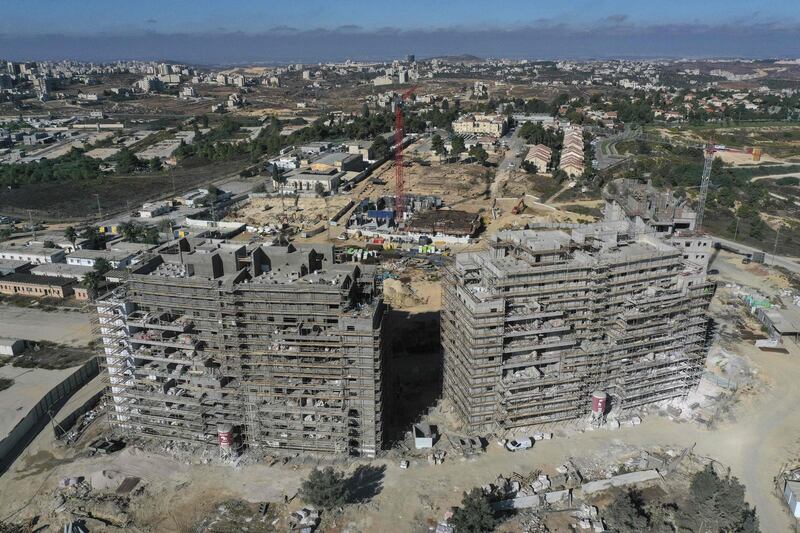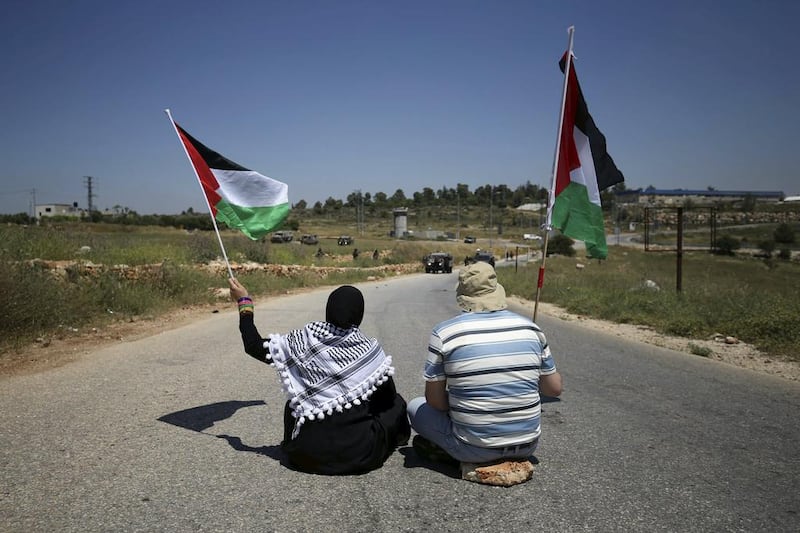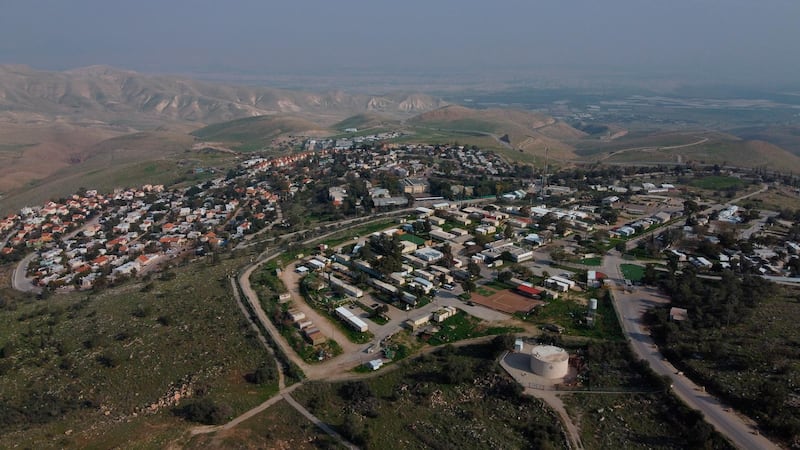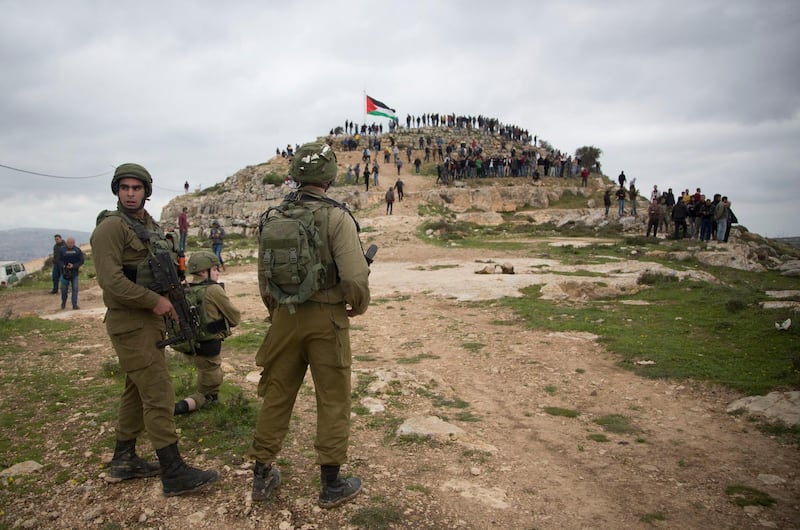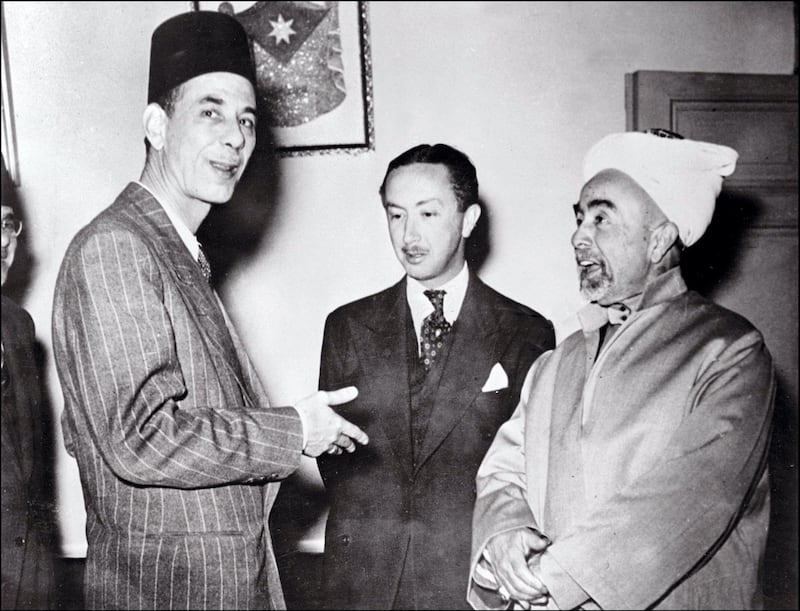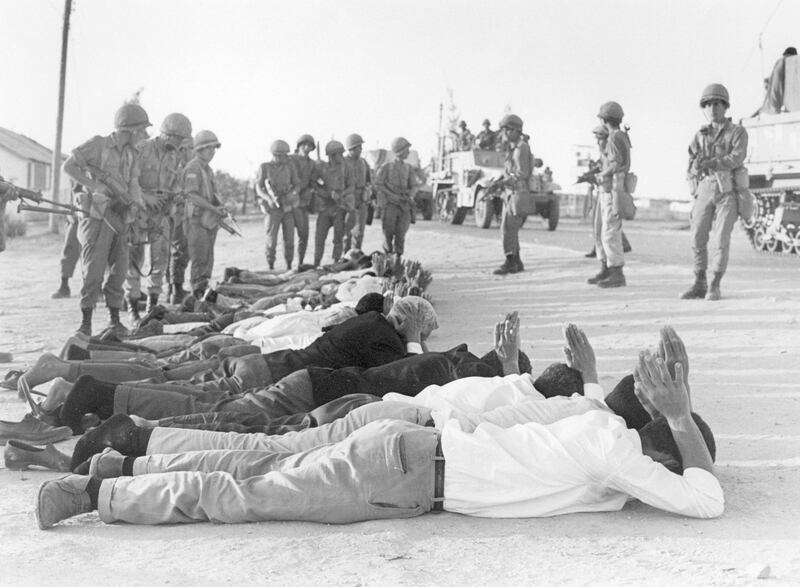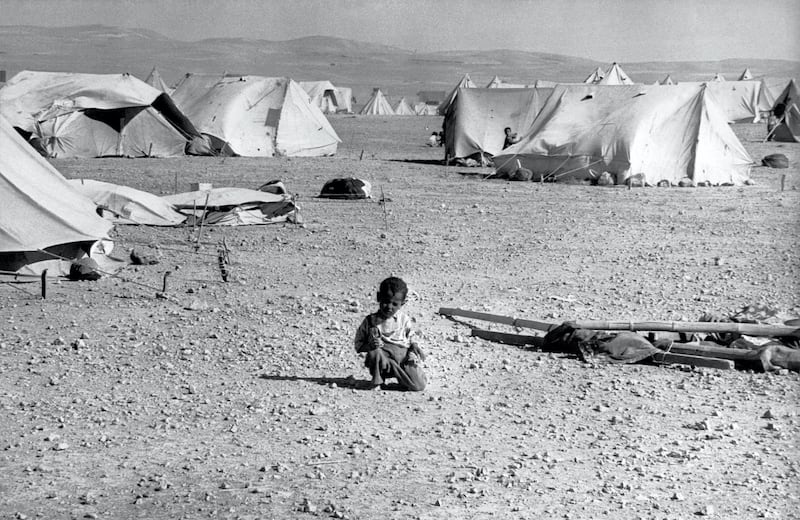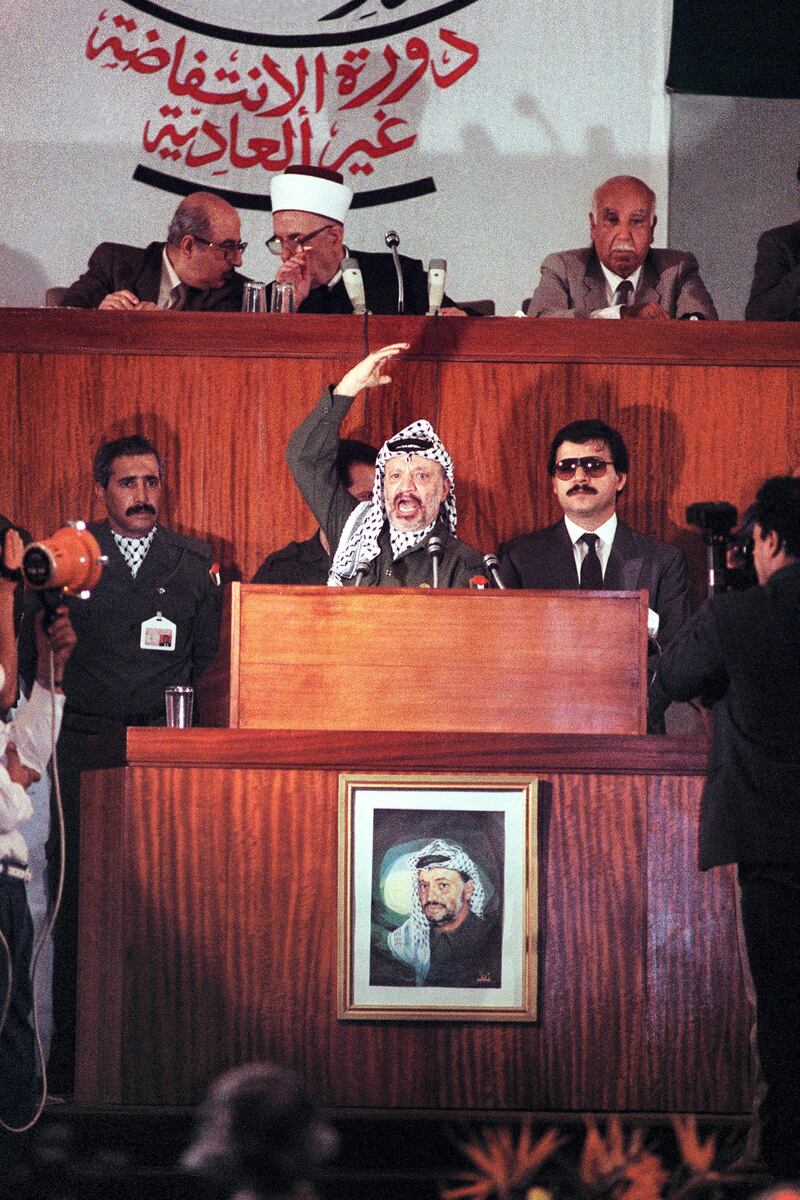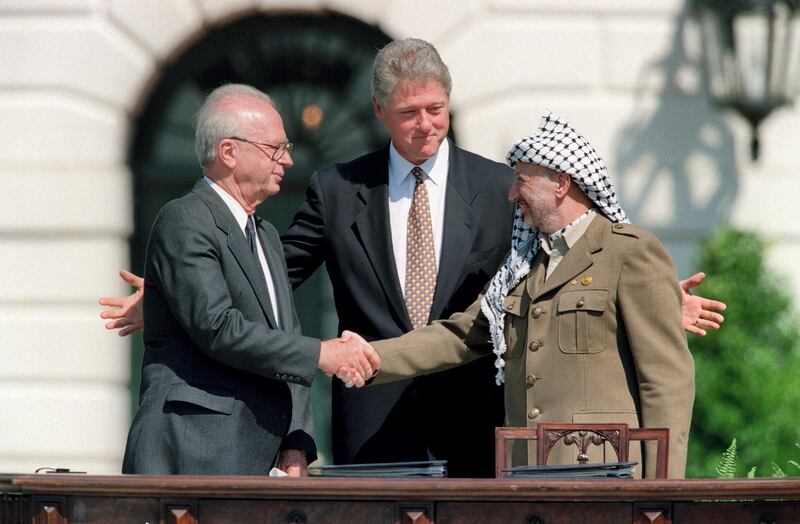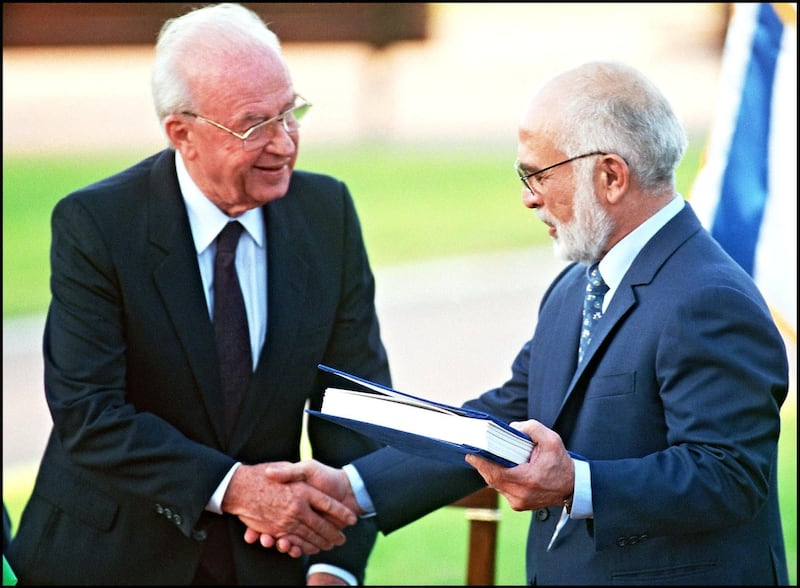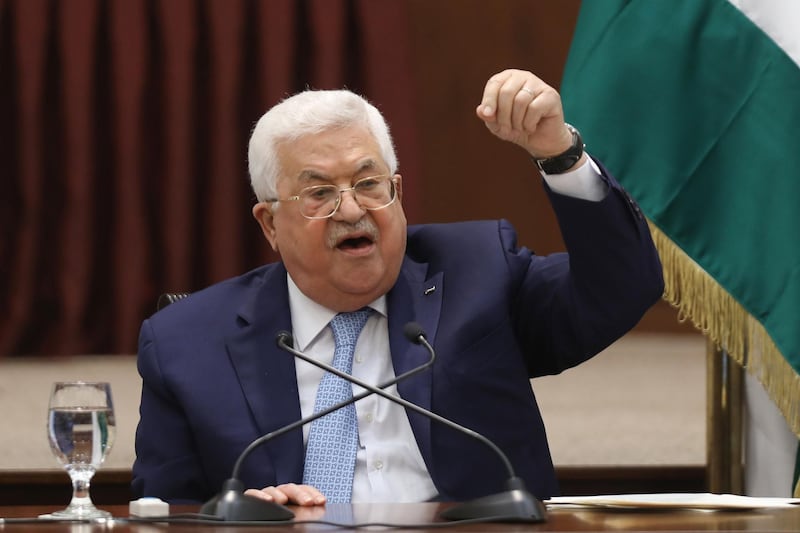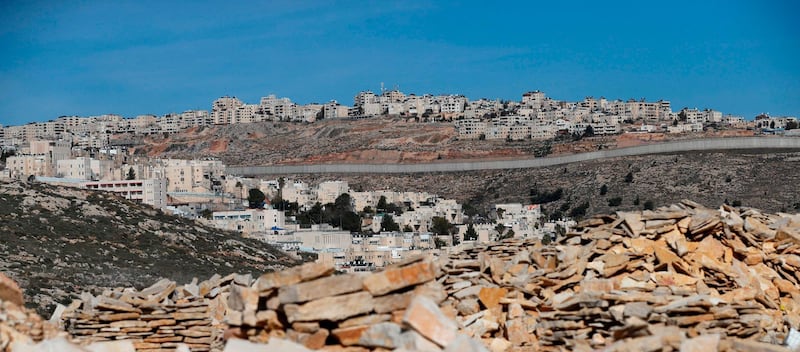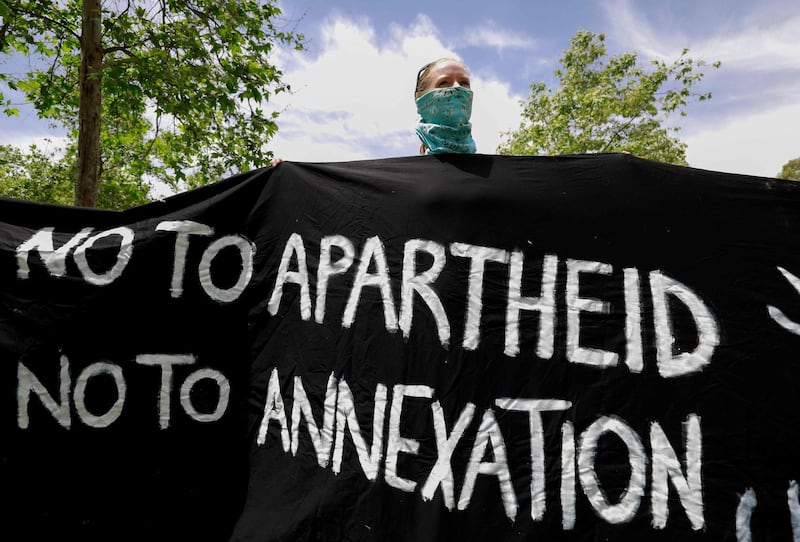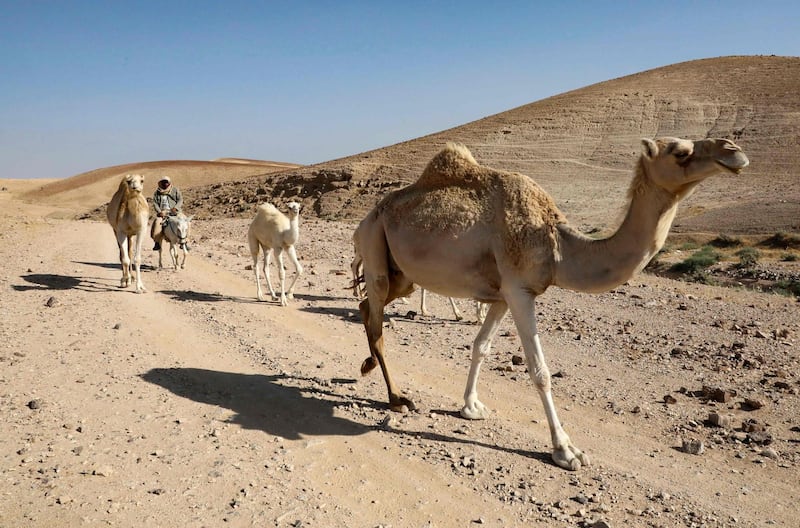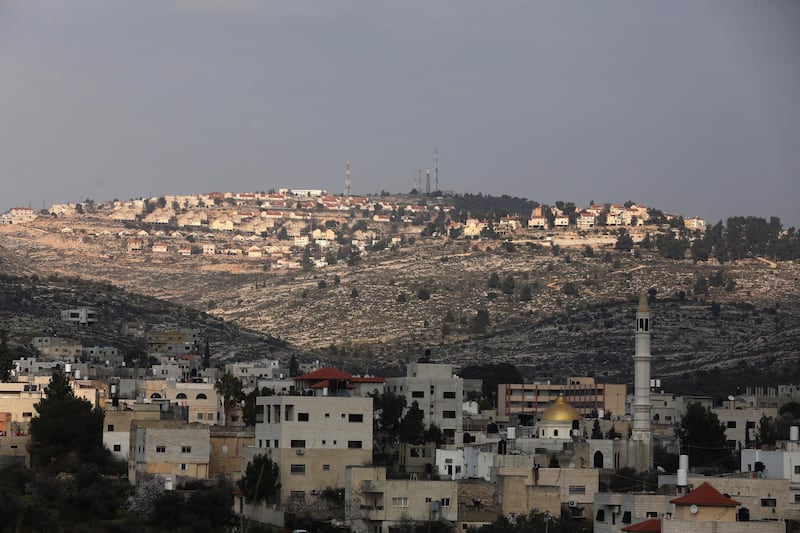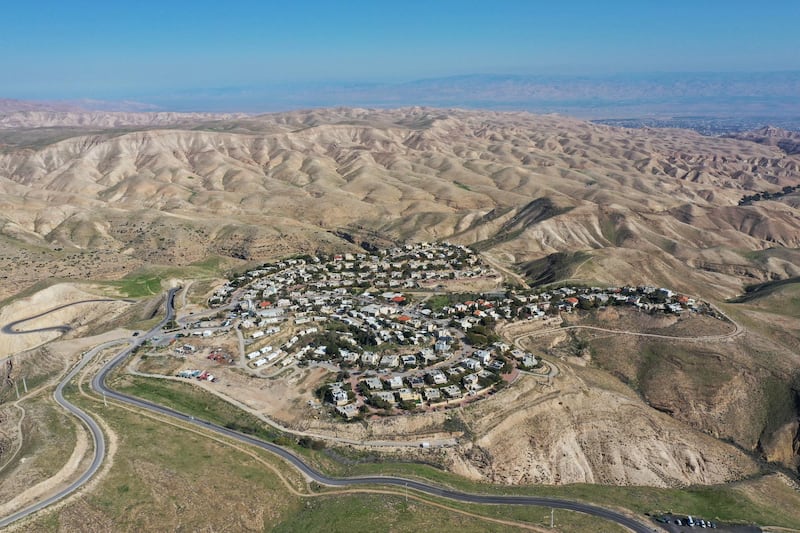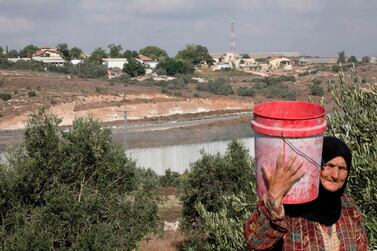France, Germany, Britain, Italy and Spain are deeply concerned about Israeli plans to build thousands of new settler homes in the occupied West Bank, the countries said in a joint statement.
Israel on Thursday said it was pressing ahead with over 2,000 more homes and on Wednesday said they would build 2,166 new homes in existing settlements, deemed illegal by almost every country in the world under international law.
"We are deeply concerned by the decision taken by the Israeli authorities to advance more than 4,900 settlement building units in the occupied West Bank," the joint statement said.
"The expansion of settlements violates international law and further imperils the viability of a two-state solution to bring about a just and lasting peace to the Israeli-Palestinian conflict," it said.
Most countries view settlements Israel has built in territory captured in the 1967 Middle East war as illegal and as an obstacle to peace with the Palestinians. The United States and Israel dispute this. The Palestinians claim all of the West Bank, alongside other areas, as the core of its future independent state.
The Palestinians hope to build part of a future state in the West Bank, while Israel cites historical and biblical links to the area and around 450,000 of its settlers live there, among 3 million Palestinians.
Occupation of Palestine – In photos
But Israel’s plans to advance the building of settlement units in the occupied West Bank brings 2020 to a record high for expansions of illegal settlements.
The European partners said that it undermined the “positive development” brought by the UAE-Israel agreement to establish ties in exchange for halting annexation of occupied territories.
“It is also a counterproductive move in light of the positive developments of normalisation agreements reached between Israel, the United Arab Emirates and Bahrain,” it added, referring to the Abraham Accords.
Ayman Al Safadi, Jordan’s foreign minister, called for international pressure on Israel to stop the building of new settlements. On Thursday, the top diplomat of the European Union also condemned the latest Israeli decision.
“Settlements are illegal under international law. As stated consistently, the EU will not recognise any changes to the pre-1967 borders, including with regard to Jerusalem, other than those agreed by the parties,” the bloc’s foreign relations chief Josep Borrell said.
The latest Israeli approvals are part of a building boom that has gained steam during the presidency of Donald Trump. It also comes months after Israel promised to put on hold plans to annex parts of the West Bank in exchange for a US-brokered normalisation deal with the UAE.
The approvals raised the number of settlement homes to be advanced this year to more than 12,150, according to Peace Now, a settlement watchdog group. It is by far the highest number of approvals since Trump took office in early 2017 and the highest since Peace Now began recording the figures in 2012.
Also Friday, Palestinians clashed with Israeli troops and settlers in the West Bank village of Burqa, east of the city of Ramallah, while trying to get to their olive groves near a Jewish settler outpost and harvest the olives. Harvest time is often a flashpoint between the sides.
Israeli troops fired teargas and stun grenades to try to disperse the crowd. The military said in a statement that dozens of Palestinians threw stones at the troops, which the military said were there in co-ordination with the farmers.
Later, both Jewish settlers and Palestinian farmers fought fires in the olive groves caused by Israeli police’s teargas canisters.
